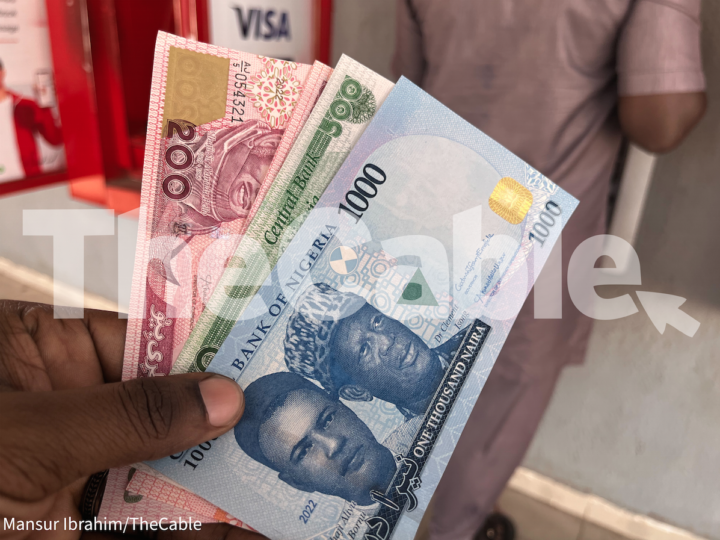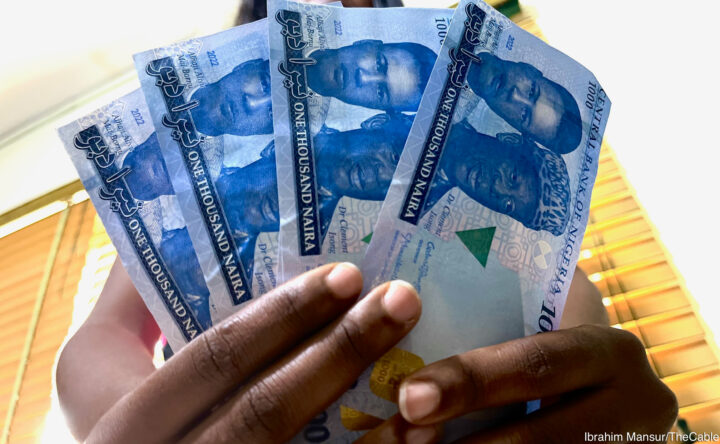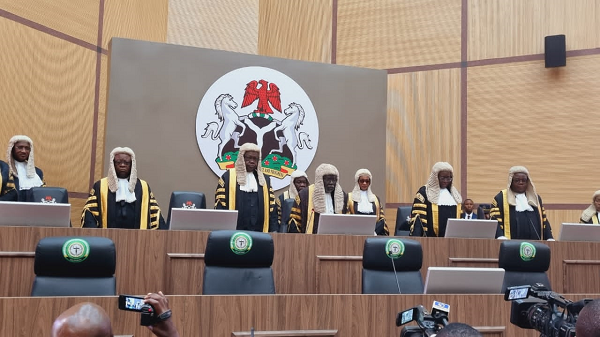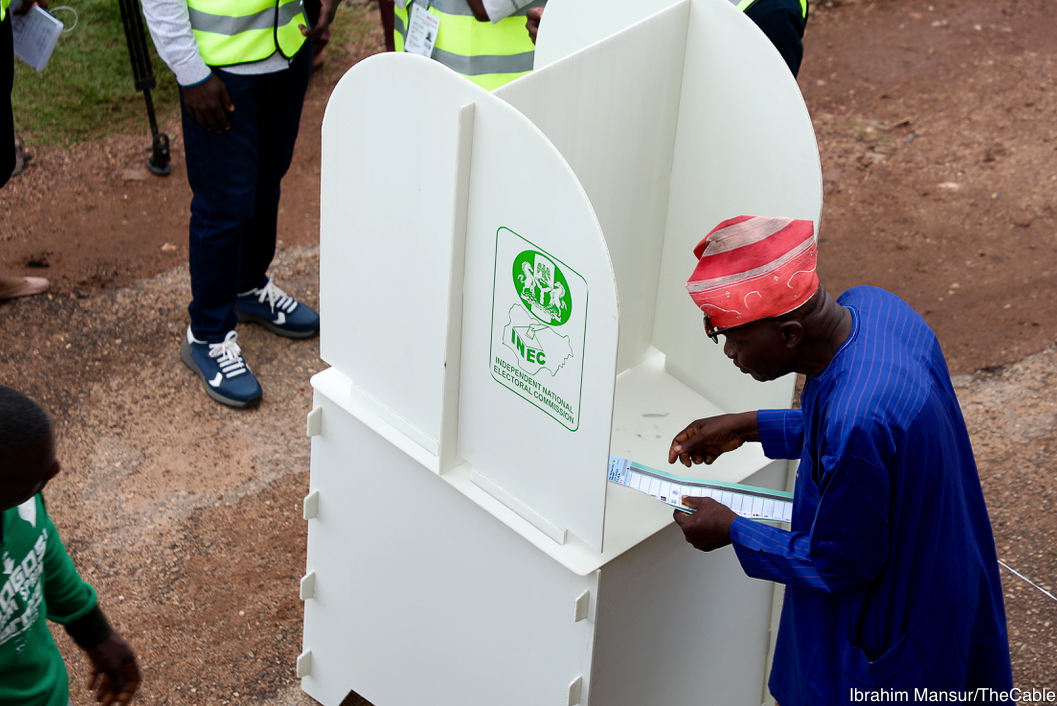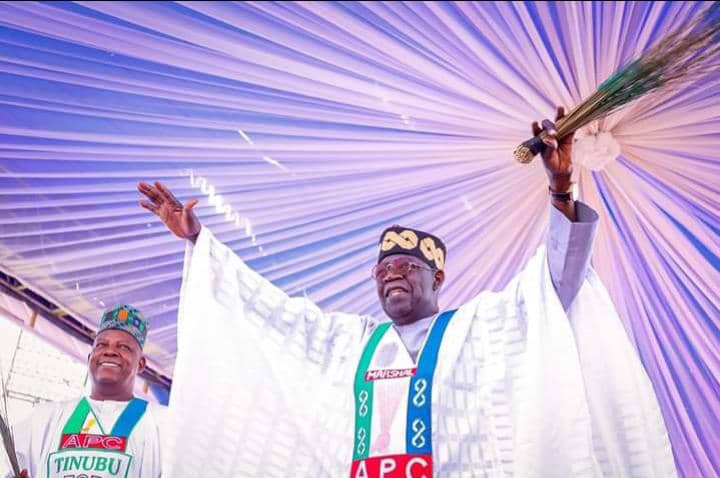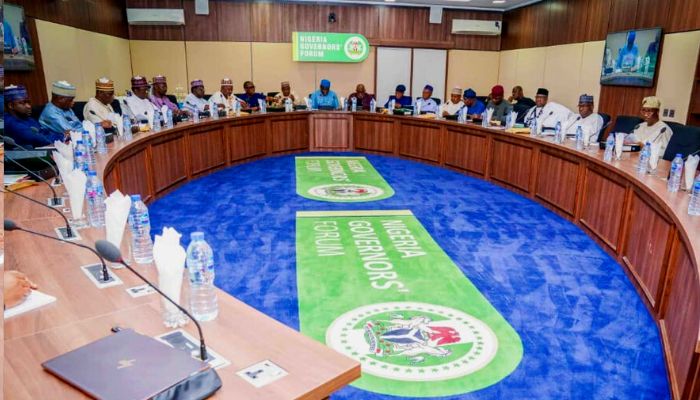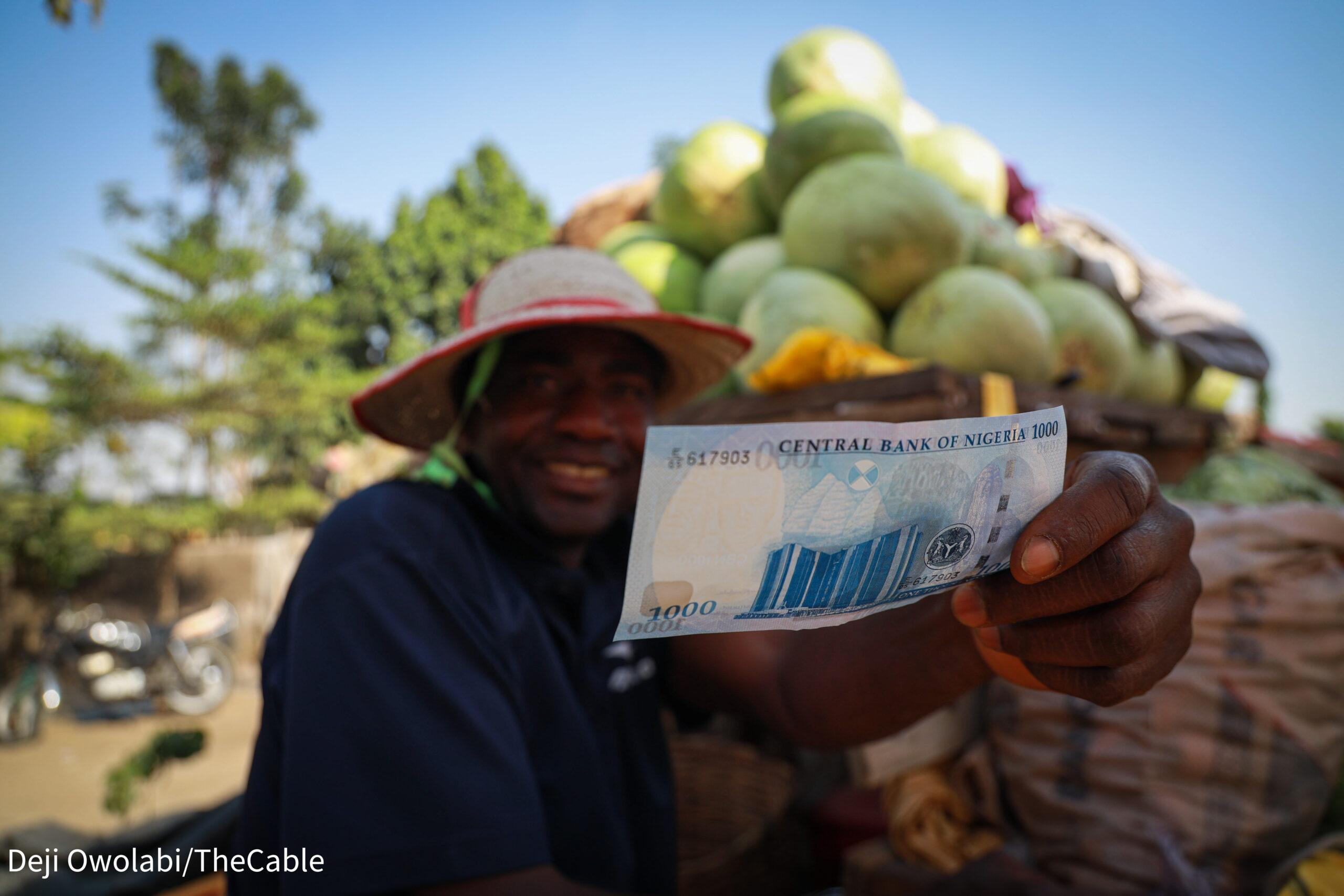When the Governor of the Central Bank of Nigeria (CBN), Godwin Emefiele, announced in October 2022 that the three highest denominations of the country’s currency would be redesigned, every sane person would, pardonably, think that he had everything regarding the implementation perfected before going to town with the announcement. From the release of the new notes to the eventual mopping up of the old ones from circulation, I thought he had everything craftily taken care of. I expected there to have been enough prints of the new notes to replace about ₦3 trillion of the old ones that were said to have been withdrawn from circulation.
My thought became more reinforced when he initially announced that the redesigned notes would be launched on December 15, 2022, but later brought it forward by about three weeks – he launched it on November 23, to be precise. Then I thought, for this man to have launched it ahead of schedule, he must, really, be on top of his game. That three weeks ahead of schedule made me overlook what I first saw as a “red flag”. That is, when the Minister for Finance, Budget and National Planning, Mrs Zainab Ahmed, came out to say that she and her ministry were never carried along in the planning, I sensed a lack of synergy among relevant stakeholders might scuttle the implementation. But many people who know how things work at that level schooled us into understanding that the board of the CBN – the level at which such decision is usually discussed, comprises the Permanent Secretary of the Ministry of Finance among others, and he, therefore, ought to have briefed the Minister. So, the Minster’s allegation was neither here nor there. It wasn’t Emefiele’s fault.
When asked, the President and the Commander-in-Chief of the Armed forces of the Federal Republic of Nigeria, Muhammadu Buhari, affirmed his support for the policy because according to him, he was carried along, and he’d given his blessing for it to go ahead. So, after then, I threw my emotional weight behind Emefiele and the policy. I have the presumption that enough logistic arrangement has been put in place for a seamless implementation. I also believed that the CBN Governor was on the same page with deposit money banks (DMBs). But I never knew how wrong I was until the January 31, 2023, deadline drew closer and people began to experience a cash crunch in the banks. Suddenly, Automated Teller Machines (ATMs) stopped dispensing both the new and the old notes. There were insinuations that the little with which banks were supplied are being taken by the branch managers to the politicians who would need cash to execute their campaign in the 2023 general election, in exchange for “God-knows-what”. Then began the usual Nigerian rush for the withdrawal of the non-available cash over the counter. Point of Sale (POS) operators began to jerk up their service charges from ₦100 for ₦5000 and ₦200 for ₦10,000 cash withdrawal, to ₦1000 for ₦10,000 withdrawal. The usual chaotic spectacle you witness whenever, and wherever Nigerians struggle for anything became the order of the day, everywhere there is an ATM.
To make matters worse, the banks’ mobile apps were no longer as “effective” as they used to be. In other words, the electronic transfer platform started experiencing glitches. People are, as we speak, unable to carry out an electronic transaction that hitherto took, not more than one minute. Transactions started taking forever to be completed — where it goes through at all — otherwise, people get debited without the recipients being credited. Failed transactions everywhere and every time. Meanwhile, some were not even opening at all. Latest reports have it that one of the big five banks (FUGAZ) has closed shop across the nation to avoid attacks on its staffers and properties by irate customers who were frustrated by their inability to access their funds.
Advertisement
I have also gotten a feeler that another would follow suit in a matter of days as it becoming increasingly difficult for them to meet their customers’ demand for the new notes. All these have, in no small measure, slowed down economic activities especially at the level of the Micro Small and Medium-Scale Enterprises (MSMEs), both in the rural and urban centres. The unbanked petty trader does not have the capacity to go cashless, assuming the buyer is able to transfer funds. The National Bureau of Statistics, I am certain, would have very interesting data to share with us, in the coming months, in this regard.
I still cannot get my head wrapped around the reason why the CBN Governor chose this time when Nigerians are going through hell having to buy fuel at the most exorbitant of rates in our history as a nation, to implement the dual policy of currency redesigning, and limiting of daily cash withdrawals by both individual and corporate organisations. Meanwhile, it is an open secret that Nigeria is grossly lacking the required infrastructure to go cashless at the moment. Again, this is the period of electioneering when politicians have to mobilise funds to facilitate their movement as they move from one location to another for rallies. The presidential election is 17 days away, and every Nigerian wants to give his or her family that sense of security by having enough cash at hand, in case of any untoward situation that might arise from the election. Nobody expects any ugly development arising from the election, though.
Some say the reason for the CBN Governor’s insistence on the implementation now is political. But one would want to ask, why is it being tied to politics? Oh, I now remember, Godwin Emefiele, the CBN Governor is a politician – a member of the ruling All Progressives Congress (APC). Remember, he had some good Samaritan Rice Farmers buy a nomination form for him to contest for the party’s presidential ticket last year. So, they argue that it is his own way of getting back at his political opponents, both within and without the party, especially those who eventually got the tickets, particularly, that of his party, APC. You know politicians; their ways are usually different from the ways of ordinary mortals like you and me. They hardly forget. They rarely forgive. Emefiele’s foray into politics, while still holding forte as the CBN Governor got me thinking, as to what former CBN Governors the likes, Aliyu Adamu, Clement Isong, Adamu Ciroma, Ola Vincent, Abdulkadir Ahmed, (of blessed memories), and those who are still alive like Paul Ogwuma, Joseph Sanusi, Charles Soludo, and Sanusi Lamido Sanusi, wherever they are at the moment, would be thinking about Emefiele’s decision to dabble in politics, be it in their graves or sitting rooms. Would they be grimacing, shaking their heads in askance over how much the current occupant of the exalted seat on which they once sat, has desecrated the hallowed office of the number one banker in the land? Would they be happy that someone who. as a matter of ethics and integrity, is not expected to be enmeshed in the murky water of politics, at least not openly, is doing so and in the process jeopardising the integrity of the office?
Advertisement
If it is true that, with the aggressive implementation of the policy, he wants to get back at his opponents in the political milieu then I feel safe to say that he intends to cut his nose to spite his face. This is because, this kind of ill-advised, ill-timed and poorly executed policy has the capacity to ruin whatever achievement he might have recorded throughout his career. Why do I think so? A look at the viral videos of bank customers protesting their inability to access their funds with the DMBs gives much cause for concern. It could extinguish what remains of the confidence that Nigerians have in the country’s banking system. It reminisces me of the #EndSARS protest, which shook the very foundation of our nationhood in October 2020. I saw a video on social media where a group of bank staffers were trying to scale the fence to escape the wrath of irate customers whose cash needs they were unable to meet. In another, I saw supposed customers vandalising the bank’s properties, while others stripped, almost naked, in the banking hall to convey their frustrations. Trust me, no sane Nigerian would want a repeat of that #EndSARS protest again in Nigeria. Never again. But now that officials of the various commercial banks, even down to their gate men are allegedly making a kill of the crisis and there is no tangible step taken so far, by the CBN, to remedy the situation, I wonder how and where Emefiele would expect his name to be written in the annals of our nation’s history.
I do not have any degree in Banking and Finance, Cash Management, or Macro Economics, but I do have, at least, a diploma in “Common Sense”. If not that this is Nigeria, to mop up all the old (₦200, ₦500 and ₦1,000) Naira notes in circulation, no deadline is needed. All we (or the CBN Governor) need to do is tell all the DMBs from the day the new notes are launched to stop dispensing the old ones that would be deposited by customers going forward. They should, instead, start issuing new notes, and in no time, the old ones would cease to be in circulation. And it would go, without this brouhaha that is capable of eroding the fragile confidence that the Nigerian banking public has in the system. This current situation is not what the system needs to gain the confidence of the millions of unbanked Nigerians who are yet to be convinced, as to why they should keep their hard-earned money in a bank whose owner(s) they do not know; a bank(s) which owner(s) is (are) not from their towns. This is Nigeria, anyway. But, if they (those in the banking sector) do not make it look like withdrawing the old notes and replacing them with the new ones is “Rocket Science” or Neurosurgery, how would they profiteer through their proxy POS businesses planted around the vicinity of the ATM locations and across the country?
This is the same thing happening in the foreign exchange market. They go to the CBN, get the dollars at the official rate, a little above which they’re permitted and, are expected to sell, with not more than a 5% markup, for instance. But what is the reality today? They buy and sell at over 100% markup, with their officials becoming instant billionaires. They buy at ₦390, for example, and sell at about ₦800 at the parallel market. Where is it done? They have successfully replicated this, in respect of the local currency. Bank managers, some of whom are now cooling off in the Economic and Financial Crimes Commission (EFCC), or the Independent Corrupt Practices and other related Offences Commission’s (ICPC) custody, hoard the new notes, thereby striking fear into people’s hearts in order to “sell” the new Naira notes to Nigerians at whatever rate they please. No nation progresses with nationals having that kind of lack of patriotism and sense of responsibility.
In the hierarchy of corruption in Nigeria, after the civil service, the bank is where you have the highest concentration of corrupt elements. They assist looters of public funds in safe-keeping their loot. They facilitate the movement of illicit funds. Bankers are, majorly, the reasons why our economy is perpetually on its knees. I stand to be corrected. They declare huge profits quarterly, yet, no commensurate growth in the real sector of the economy which they are supposed to finance businesses from where they purportedly make profits to justify same. They pilfer customers’ accounts, impose fictitious charges, and sometimes, carry out naked stealing with the knowledge that those customers might not call back. Just imagine that they steal ₦10 each from over a million customers; that will amount to over ₦10 million of stolen money, tagged as profit. Until those “Economic Maguire” (in the voice of that Ghanaian parliamentarian) are made to adhere strictly to basic principles and philosophies of banking (financial intermediation), the Nigerian economy will remain the way it is. I am not a prophet (of doom). I am just saying the obvious. It is only in Nigeria that a savings account records a negative balance. Or where else does it happen, apart from Nigeria? Fear Nigerian banks.
Advertisement
Many people have been blaming POS operators for charging outrageous fees for cash withdrawals. Well, I won’t blame them, for if the enabling environment has not been created by the tardiness of the CBN, which irrigates the sordid conducts of the commercial banks’ workers, there wouldn’t have been any opportunity for them to profiteers. It is simply a function of the “Banality of Evil”, as propounded by the famous political theorist Hannah Arendt.
Now that, salonists, chemists, petty traders in the neighbourhood, roadside vulcanizers, roadside mechanics, food sellers (“Mama Put”), peasant farmers, Okada riders, the tomato seller, “Mai Suyas”, among others, have been denied access to their savings and cannot, therefore, meet their daily operational needs, and those of their respective families. Given the above scenario, earning further income is out of the equation, due to the domino effects of lack of liquidity.
Why make a simple task look so difficult that the nation’s economy would be comatose as we are witnessing now? Why eat bread as though it is bony? Assuming the CBN has gathered its acts together by printing enough of the new notes before going to town with the announcement, the simple thing to do would be to instruct the DMBs to stop dispensing the old notes and start loading their ATMs with the new note. Trust Nigerians, nobody would like to keep the old notes again. They would all be eager to exchange it for new ones, and by the time the economy is rid of the old notes, it would appear as though, nothing has happened. That is if there is no ulterior motive for commercial bank officials. That is if common sense is common. That is if the CBN is in charge, and the Governor is seen to be apolitical. That is if this is not Nigeria, where a minority has no compunction, building their comforts around the inconveniences of the majority, or where the minority build their fortunes on the misfortune of the majority. This is a situation in which common sense would have sufficed.
Abubakar writes from Ilorin. He can be reached via 08051388285 or [email protected]
Advertisement
Views expressed by contributors are strictly personal and not of TheCable.
Advertisement
Views expressed by contributors are strictly personal and not of TheCable.
Add a comment

